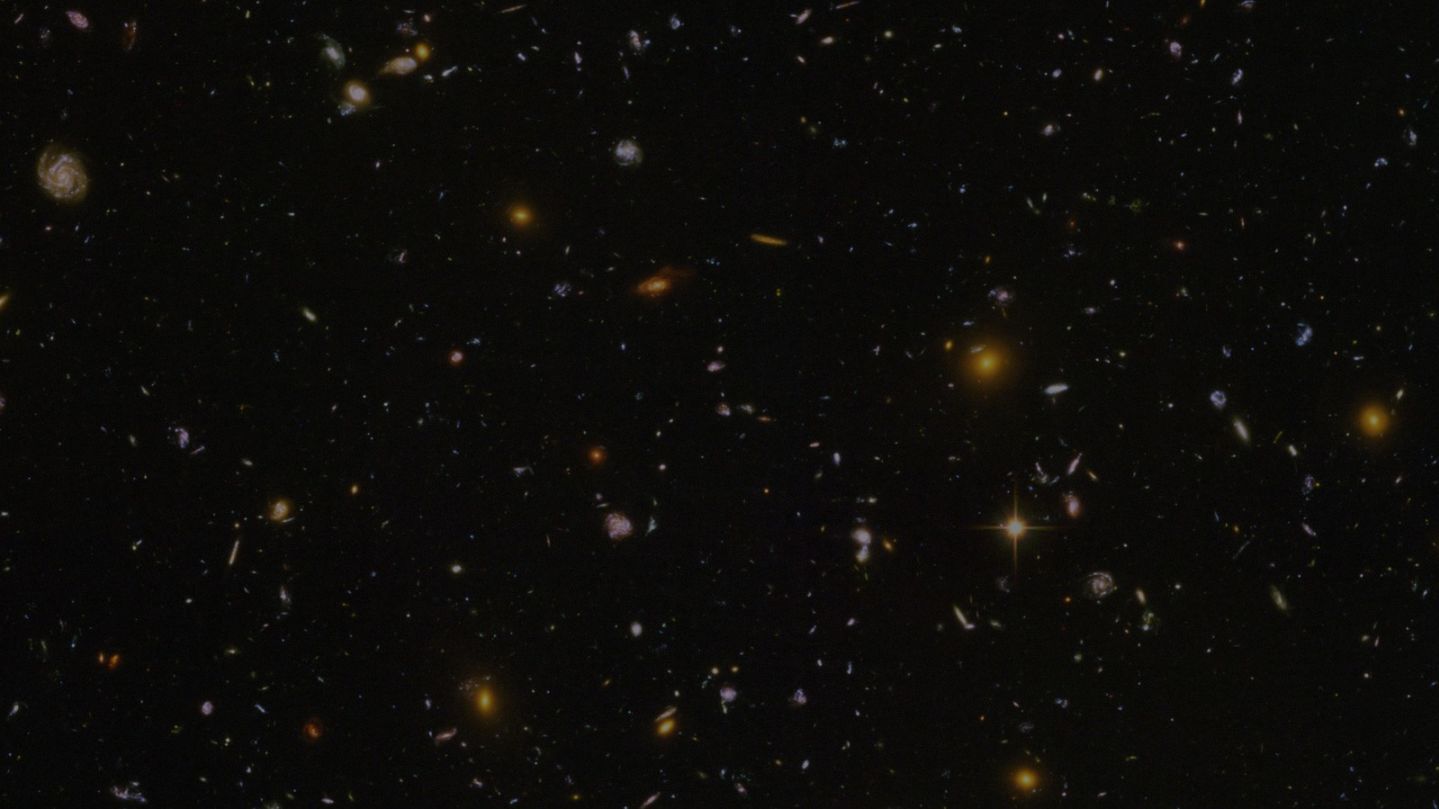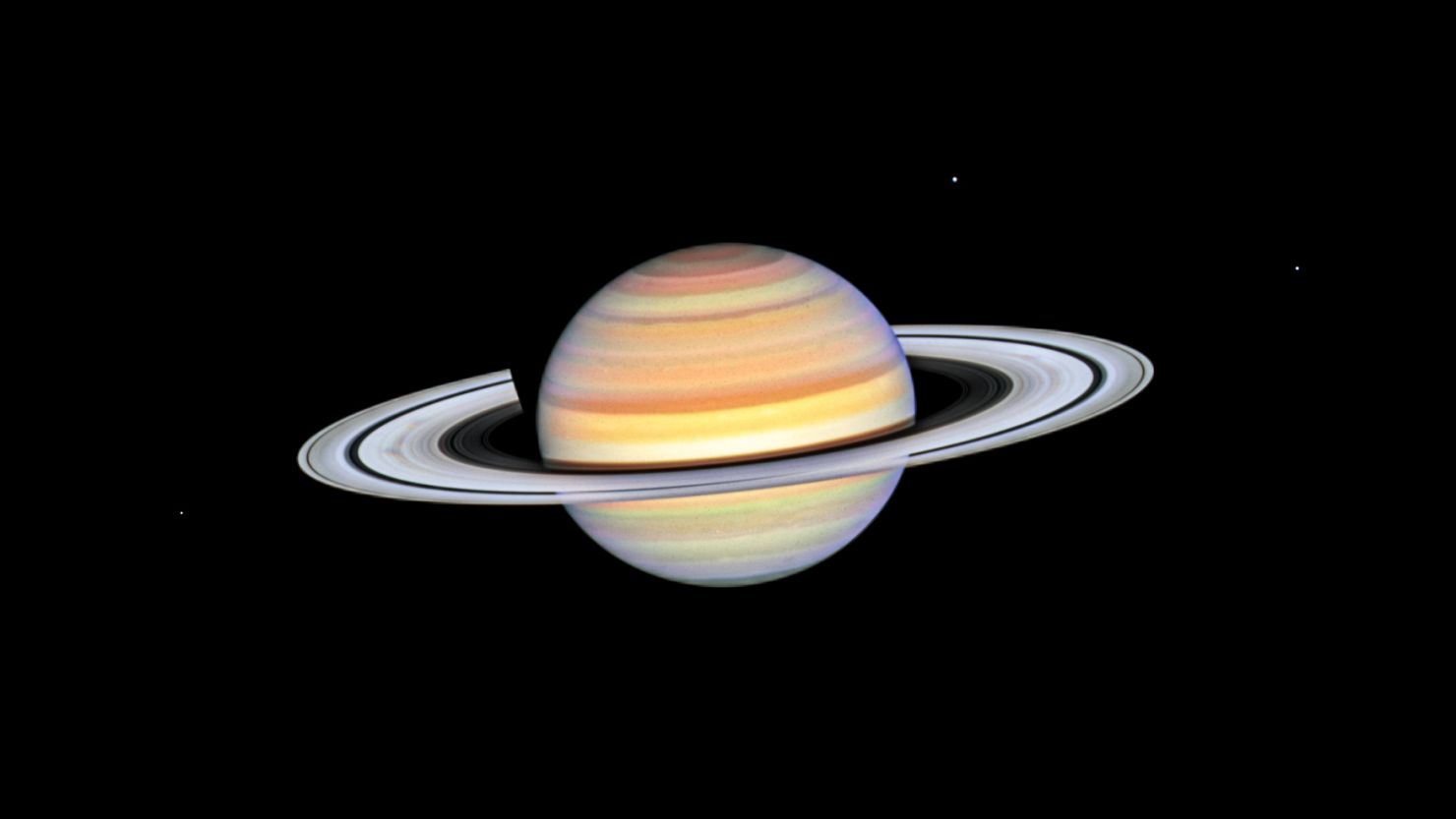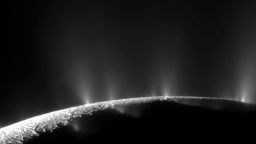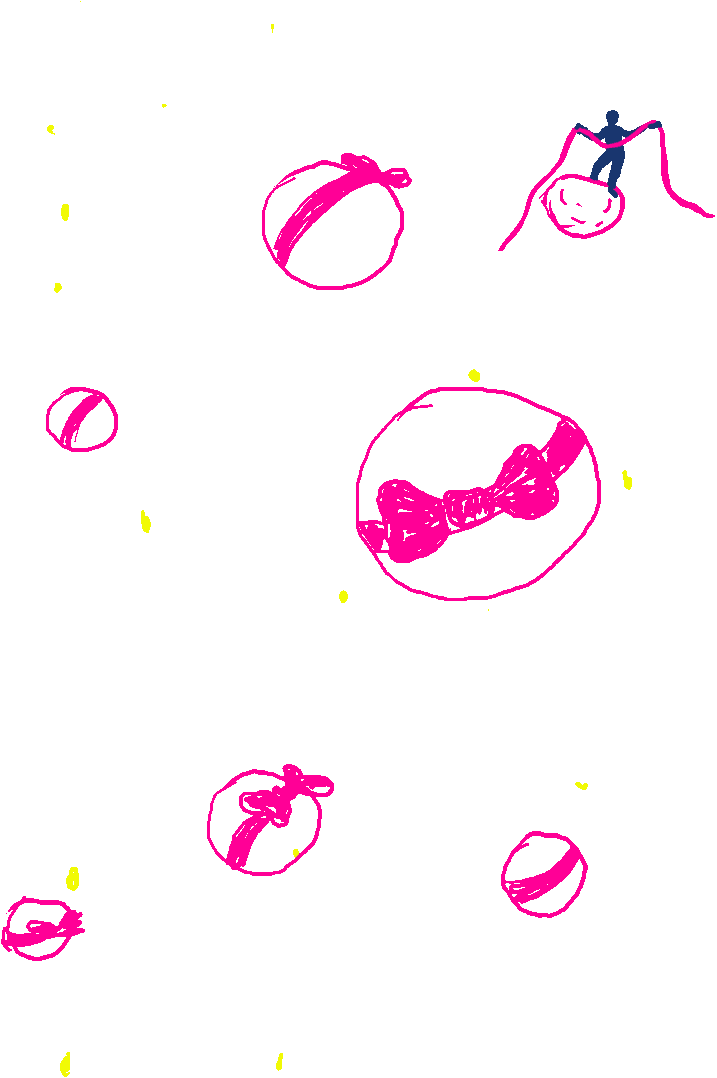Sign up for CNN’s Wonder Theory science newsletter. Explore the universe with news on fascinating discoveries, scientific advancements and more.
The Hubble Space Telescope captured a newly revealed image of the mysterious, ghostly shadows on Saturn’s rings — the latest sighting of the so-called “spokes” that continue to baffle scientists.
The composite photo, released Thursday by NASA, was taken by Hubble on October 22 as Saturn was about 850 million miles (1.37 billion kilometers) away, according to the space agency. The space observatory has been orbiting Earth just a few hundred miles above the surface for more than three decades.
Astronomers have long known about the perplexing spokes on Saturn’s rings, which look like apparitions skating along the rings and can be spotted in various locations depending on where the planet is in its orbital cycle.
Over time, observations have revealed that the number and appearance of the spokes can vary depending on Saturn’s seasonal cycle. Similar to Earth, the planet has an axis with a tilt that causes seasonal changes, though each season on Saturn lasts about seven years, according to NASA.
Hubble is set to observe the unexplained phenomenon at peak activity as researchers aim to unravel its secrets.
“We are heading towards Saturn equinox, when we’d expect maximum spoke activity, with higher frequency and darker spokes appearing over the next few years,” said Amy Simon, the lead scientist of Hubble’s Outer Planet Atmospheres Legacy, or OPAL, program, in a statement. Simon is based at NASA’s Goddard Space Flight Center in Greenbelt, Maryland.
Saturn’s autumnal equinox is expected to occur on May 6, 2025.
Spying Saturn’s spokes
The NASA Voyager 2 spacecraft captured the first evidence of the spokes in the 1980s. And the Cassini mission, a dedicated Saturn probe, made observations of the spoke phenomenon during its seasonal peak in the late 2000s.
More recent observations from Hubble occurred earlier this year as part of a renewed push to identify what causes the spokes’ appearance.
The spokes may appear small in images, but they can actually be larger than Earth in width and diameter, according to NASA.
Scientists will continue studying Saturn’s mysterious spokes through the 2025 equinox in an attempt to finally unlock an explanation for the apparitions.
“The suspected culprit for the spokes is the planet’s variable magnetic field,” NASA said in a February news release. “Planetary magnetic fields interact with the solar wind, creating an electrically charged environment.
“On Earth, when those charged particles hit the atmosphere this is visible in the northern hemisphere as the aurora borealis, or northern lights.”
Essentially, astronomers suspect that tiny particles can become charged by this activity, causing them to briefly rise higher than surrounding material and create an apparent bulge.
Researchers hope that Hubble data will prove or disprove the theory once and for all, building on observations collected by Voyager 2 and the Cassini mission.
Video caption: Seven Hubble Space Telescope images, each taken about four minutes apart, were stitched together to show “spoke” features rotating around Saturn.








